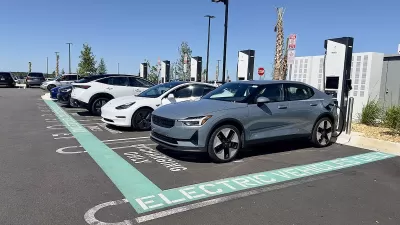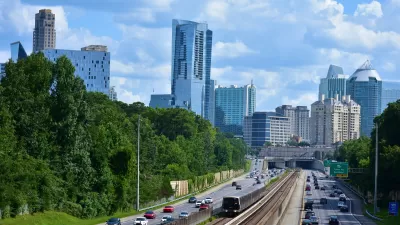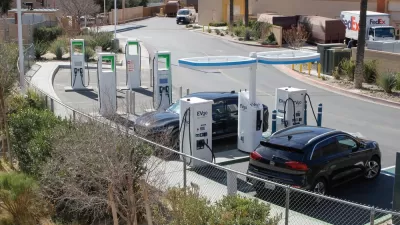As the Highway Trust Fund goes bankrupt, the editors of Bloomberg suggest new ways to finance transportation infrastructure that integrates new technology, increasing public-private associations and loosening the funding framework itself.
The central weakness exposed by the conflicting proposals from the White House, the Senate, and the House to finance transportation infrastructure is identified by the Editors as each plan's reliance on unsustainable short-term funding sources. This weakness is, of course, caused by the imminent demise of the Highway Trust Fund.
According to the editors, "The reason everyone is resorting to such sophistry is that the Highway Trust Fund, which gets the bulk of its revenue from a federal excise tax on gasoline of 18.4 cents per gallon, is nearly bankrupt. Because the tax isn't adjusted for inflation, and has been pegged at the same rate since 1993, it has covered less and less of U.S. transportation spending."
As a response to the politically untenable proposition of raising the gas tax, the editors propose new funding approaches to take the place of the Highway Trust Fund. "One promising future replacement for the gas tax is a 'vehicle miles-traveled fee,' which would use satellite tracking or a variety of other methods to charge drivers by mileage, regardless of the fuel they use."
Another avenue identified is, "more and better public-private partnerships for construction projects," based on the success of the much lauded Transportation Infrastructure Finance and Innovation Act (or TIFIA).
Lastly, the editors suggest that the structure of transportation funding could use an update to reduce bureaucracy and allow states more control over federal funding use.
FULL STORY: With Gas Tax on Empty U.S. Must Find New Way to Fund Roads

Maui's Vacation Rental Debate Turns Ugly
Verbal attacks, misinformation campaigns and fistfights plague a high-stakes debate to convert thousands of vacation rentals into long-term housing.

Planetizen Federal Action Tracker
A weekly monitor of how Trump’s orders and actions are impacting planners and planning in America.

Chicago’s Ghost Rails
Just beneath the surface of the modern city lie the remnants of its expansive early 20th-century streetcar system.

Bend, Oregon Zoning Reforms Prioritize Small-Scale Housing
The city altered its zoning code to allow multi-family housing and eliminated parking mandates citywide.

Amtrak Cutting Jobs, Funding to High-Speed Rail
The agency plans to cut 10 percent of its workforce and has confirmed it will not fund new high-speed rail projects.

LA Denies Basic Services to Unhoused Residents
The city has repeatedly failed to respond to requests for trash pickup at encampment sites, and eliminated a program that provided mobile showers and toilets.
Urban Design for Planners 1: Software Tools
This six-course series explores essential urban design concepts using open source software and equips planners with the tools they need to participate fully in the urban design process.
Planning for Universal Design
Learn the tools for implementing Universal Design in planning regulations.
planning NEXT
Appalachian Highlands Housing Partners
Mpact (founded as Rail~Volution)
City of Camden Redevelopment Agency
City of Astoria
City of Portland
City of Laramie





























